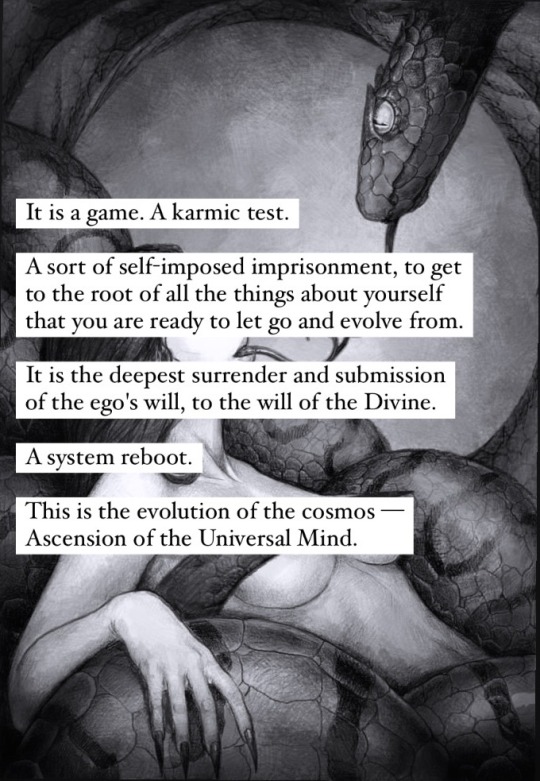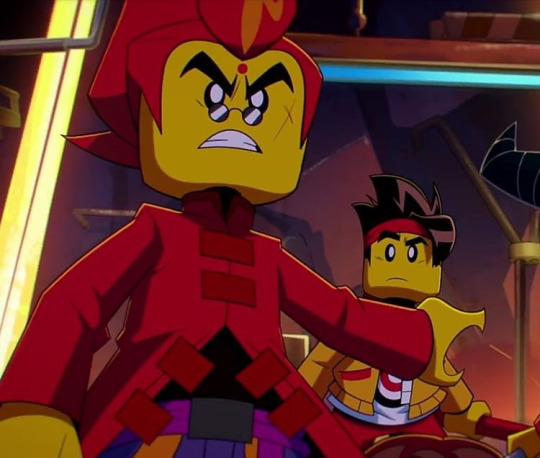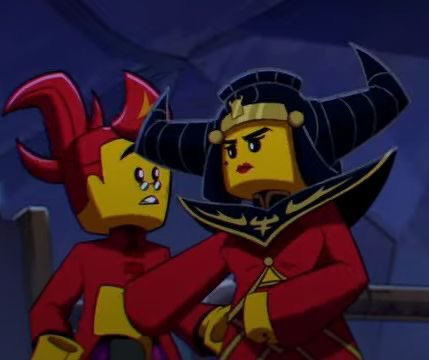#the enlightenment era
Text
There is no vanilla extract sry mates I want your actual opinions
17 notes
·
View notes
Text
Which Underrated Woman from History are You?
Finally got around to making a uquiz featuring six of my favourite women from history! You can either get someone from the French Revolution, Roman Republic (I know, how unexpected!) or from 1700s/early 1800s.
Featuring scientists, writers, politically active icons and a few poets whose lives were intertwined with theirs, as a treat!
Enjoy and thanks everyone for sharing! ✨
#frev#french revolution#ancient rome#roman republic#history#tagamemnon#uquiz#tumblr quiz#which are you?#age of enlightenment#1700s#1800s#romantic era#18th century#19th century#émilie du châtelet#fulvia#clodia#mary shelley#ada lovelace#lord byron#literature#women's history#uquiz link#personality quiz#quiz tag#percy bysshe shelley#lucile desmoulins#camille desmoulins#catullus
174 notes
·
View notes
Text
Ok I'm probably going to regret reinventing 17th century European religious philosophy here but:
Ludinus's issue with the gods as stated to Imogen and Fearne (and I will state right now that we know he was lying or deliberately misleading at points in that conversation so I don't exactly take him at his word, but let's assume he does mean this) is that they did not prevent the Calamity. I have the following questions.
Does he have any loyalty/feelings about the Titans given that they would have killed all the people in the era of the Schism, ie, the gods averted that Calamity? My guess is no, which means that whole avenue of discussing the Titans was something of a dead end.
How should Calamity have been averted? The Prime Deities during the Age of Arcanum largely let people do what they wanted, which is what led to one of those mortals releasing the Betrayer Gods. Should the gods have struck down Vespin Chloras before he actually did anything, Minority Report style? Can the gods even predict based on the actions of a single individual or small group, because my guess is they can't, particularly since within the current stream of gameplay they absolutely cannot [ie, the reason the Changebringer can't tell FCG to stay or run is because Matt Mercer is the Changebringer and he doesn't know how people will roll; you do need to consider the medium here]. But if they could: so you think they should strike down mortals on the basis of thoughtcrimes? Or control them? In that case, why is Aeor a problem? There's a lot you can argue is justified once you permit the gods to override free will and kill people over mere potential for catastrophe.
On that note, Laerryn both was an unwitting architect of the Calamity (shorted on energy and then killed the Tree of Names, which served as a core planar defense system) but also averted the worst of it. Did the lives she saved by preventing the rise of Rau'shan and Ka'Mort outweigh the lives she took by destroying the Tree of Names? How should the gods have reacted?
Should, perhaps, the gods have all sealed themselves away earlier - perhaps post-Schism? If so, then the issue isn't the Divine Gate, now is it? Should the gods intervene or not intervene? Should they remove themselves or no? It feels like the issue isn't that they distanced themselves so that they can do less in the world, particularly if you wish to kill them, but that you really want to fucking kill them and they made that somewhat more difficult.
How do we know the gods (for example) didn't save Laudna? She was hanged and she's still alive; Morri would probably count this as saving her and I don't see the same desire to wipe out all Archfey. [real talk I find most discussion of Laudna specifically to be...incomprehensibly ignorant in its refusal to acknowledge that everything about it is player agency related, whether it's the story that the cast played out for Vox Machina or the decisions Marisha specifically made in creating the character, ie, do you think Matt should have said "well you can't play a Hollow One because that would mean the gods didn't save you" not to mention the fact that again, we are playing this within a game system where the existence Deus Ex Machina would in fact fucking suck ass; but even setting aside those reasons why this argument is stupid, it's still stupid. It's like a layer cake of stupid.] Again: do you want more intervention or less? Killing them guarantees less.
I'm assuming the problem with the Calamity is the vast loss of life, in which case, what's the math on how many people have been killed by the Vanguard or Imperium in the pursuit of unleashing Predathos? How many more will die?
If the release of Predathos doesn't result in the immediate demise of all the gods, and the Divine Gate is down, why isn't this a recipe for Calamity 2? What was the motivation for killing the gods again?
Should we kill mortal diviners who do not do all within their power to stop terrible things that may come to pass? If the issue is that some people have power without working for it, why haven't we killed all the sorcerers?
Should we be listening to a single word from someone who consumes random fey to live longer, and that's just the start of the CVS receipt of atrocities?
Is there a point where one's deeply held beliefs due to one's own personal trauma become invalidated due to one's actions as a result of that trauma? If so, why is the limit for Orym "is okay with killing people who are trying, directly, to kill you (which, frankly, isn't even a trauma response, that's just called not wanting to die, which I highly recommend as a personal philosophy), and gets upset when people defend those knowingly collaborating with his family's murderers" and the limit for Vanguard generals "family abandonment/just. buckets of murder of innocents./child soldier recruitment in multiple different contexts/eating fey as biohacking/destroying an entire city and the surrounding forest for hundreds of years (ongoing)/imperialism in multiple different contexts/I was going to make a gallows humor joke about how while neither exist in-world they've violated the Geneva Convention AND the IRB for testing on human subjects multiple times over but actually those both are in fact written in a lot of the same blood/probably some others that I'm forgetting"
#i feel ultimately a lot of this fandom debate boils down to yes this is obviously fiction#but like within the fiction can you sketch out the implications of your argument or is it just a lot of abstract ideals that can't coexist#I don't actually expect answers to these; obviously the point is if you think there is an easy one there isn't#anyway i'm like if an enlightenment era polymath were a religiously observant agnostic who used the phrase fucking suck ass#cr spoilers#cr tag
80 notes
·
View notes
Text
ao3 tags have morphed the meaning of Angst so much it's basically synonymous with whump now
#misled again and again. was expecting intellectual discussion of enlightenment era existentialism#got trembling blorbo instead#for shame#/s
74 notes
·
View notes
Note
body hair on women 👍👍👍👍
hell yeah brother 🔥🔥🔥💥💥❤️🔥❤️🔥
#talkin#all the comments ive gotten on that#and the body type hcs#have been rly positive and affirming#which id like to take as a sign of a more enlightened and tasteful era but is probably just a sign that#2024 baldur’s gate 3 fans have better taste than 2017 overwatch fans#which says literally nothing. the bar is abyssopelagic. the bar can not be seen at such depths
53 notes
·
View notes
Text

#the divine cosmic play of consciousness#Adam and Eve and the apple tree#paradise is within you#spirituality#ascension#enlightenment#christ consciousness#new earth#age of aquarius#new age#my art#dark goddess era
74 notes
·
View notes
Text
You've read a book named Women in Power: Marie-Therese, Empress of Austria 1717-1780 so you will obviously love Gorbachev's autobiography

Never change, Goodreads
251 notes
·
View notes
Text
Not to start shit but there's no non-misogynistic explanation for hating Pattie or Jane
#i guess you could say the same about cyn or mo but no one seems to hate them#it's just the women who stand up for themselves who we want to villify#because omgosh you not wanting to be treated like absolute shit really hurt Paul's feelings :((((#bc as a woman it's your calling to absorb cruelty from ✨special✨ men so they have more time and mental energy to be special little boys#sorry i had an irl conversation about jane that filled me with rage#saying you wouldn't have left 1960s era paul doesn't mean you're super nice and loving and special and better than jane#you're not a loving beacon of tender femininity#you have low self esteem#just the way ppl try to twist it to make jane a bad person just for wanting some basic decency and respect....#if she and pattie did a bunch of fucked up shit that i dont know about please enlighten me#bc all the judgement i see comes from unhinged Beatles fans who can't accept their fav has a history of treating women like shit#(and that they probably continued to have those tendencies even in their fairytale romances)#the beatles#jane asher#pattie boyd#paul mccartney#george harrison
20 notes
·
View notes
Text
benjamin rush was such a fucking g. like, he was anti-slavery, rejected the idea that non-white races were biologically inferior, gave lewis and clark opium for anxiety, AND he killed george washington???? king shit.
#granted. he didn’t think black people were biologically inferior because he thought that blackness was a genetic disease but HEY!!!#that’s FAR from the worst enlightenment era take on race#benjamin rush#founding fathers#amrev#history#winsome’s wailings
31 notes
·
View notes
Text

Mildly deranged witchpriest of Rahab. I needed a warmup and wanted to try my hand at drawing him again
#lok oc#nephah#lomart#art#oc#depending on the era he might have become the prophet class in nosgoth#as it stands he is not haha#i like the idea of being a follower of azimuth though before she got corrupted#not that I trust she wasnt without a sadistic streak before that#but hoooly hell guys the prophets are fucking terrifying#shoutout to malus who saw a blood fountain with black blood and was like yo i gotta taste that#and fell into a year long coma only wake up enlightened af#legacy of kain#i guesssss
13 notes
·
View notes
Text
lied to my parents about taking a philosophy class instead of a religion class bc they would’ve been weird about it but I had to deal with lying about what I’m learning about in the class. I panicked and said FREUD!
27 notes
·
View notes
Text
The Development of French Women’s Rights — according to Carla Hesse
Women’s status in relation to their husbands during the Revolutionary era:
“Legal reform, however, did not go so far as to render the civil status of married women equal to that of their husbands. This radical proposal, initiated by the legislator Jean-Jacques-Régis de Cambacérès, was definitively rejected by the Convention in 1793. So even at the revolutionary high water mark, the legal standing of married women still remained contingent to a certain extent on the will and consent of their husbands.”
Divorce and other rights in the New Regime:
“By abolishing in 1791 guild restrictions imposed by the former regime, revolutionary legislators opened all professions, including publishing and printing, to women, as long as their husbands (if they were married) consented. Prescriptive primogeniture was abolished and divorce legalized in September of 1792.”
***Divorce was legalized in September 1792, but abolished in 1816 during the Restoration after the fall of Napoleon.
Women’s status in relation to their husbands under the Old Regime:
“Under the Old Regime, in short, a married woman’s right to publish her work was contingent on her husband’s consent. She was not permitted to sign any contracts without her husband’s consent, she could not, on her own, make a legally binding arrangement with a publisher. And, if she did publish, the legal claim to her work belonged to him unless he explicitly authorized his wife to act on her own behalf.”
“Few women wrote and published under the Old Regime, and many of those who did were legally separated, unmarried, or widowed. Perhaps the two most widely read women writers of the eighteenth century, Mme de Gaffigny and Mme Riccoboni, for example, did not in fact begin their literary careers until after they were separated from their husbands.”
A conclusion from the author:
“They were denied the vote in 1789, prohibited from political mobilization during the Terror, denied civil equality within marriage.”
Source: Carla Hesse, The Other Enlightenment: How French Women Became Modern
#Carla Hesse#The Other Enlightenment: How French Women Became Modern#women#napoleon#napoleonic era#women’s history#Marcel Garaud La Révolution française et la famille#history#french history#napoleonic#french revolution#frev#France#quotes#révolution française#la révolution française
31 notes
·
View notes
Text
In a way he’s kind of like a dog








#lmk brainrot era#ive been enlightened on the red son cat agenda but#he still has that Small Angry Dog energy#He's also incredibly loyal and protective#he just looks like a kicked puppy sometimes#i need him to be happy#next i shall spread the Red Cat agenda#lmk#lego monkie kid#monkie kid#lego#red son#lmk red son#red son lmk#red son lego monkie kid#lego monkie kid red son
106 notes
·
View notes
Text
I love how the Victorians were like “yeah the dark ages were so brutal look at all of these torture devices and chastity belts I recreated”
like babes we both know there was no “recreating”
your literally just projecting
#they both romanticised and demonetised the dark ages#shitpost#victorian#edwardian#the enlightenment#dark ages#medieval era#iron maiden
27 notes
·
View notes
Text
Listen, I understand the instinctive desire to portray Frankenstein with a 19th century aesthetic like you would with pretty much any other gothic lit, but it's a shame that most people seem to ignore the fact that the story is canonically set sometime in the late 1700s, like a century earlier than Dracula or Jekyll and Hyde. We're still in the age of enlightenment here, people - the vibes are entirely different from what you find in the Victorian era.
anyways this whole post is to say that I never want to see a picture of Victor Frankenstein in full-length pants ever again
#justice for knee breeches#tbh enlightenment-era men's fashion is so much more fun than victorian stuff i don't know why this is slept on#also like.. victor is part of the aristocracy. what if he wore wigs#much 2 think about...#frankenstein#victor frankenstein#gothic literature
345 notes
·
View notes
